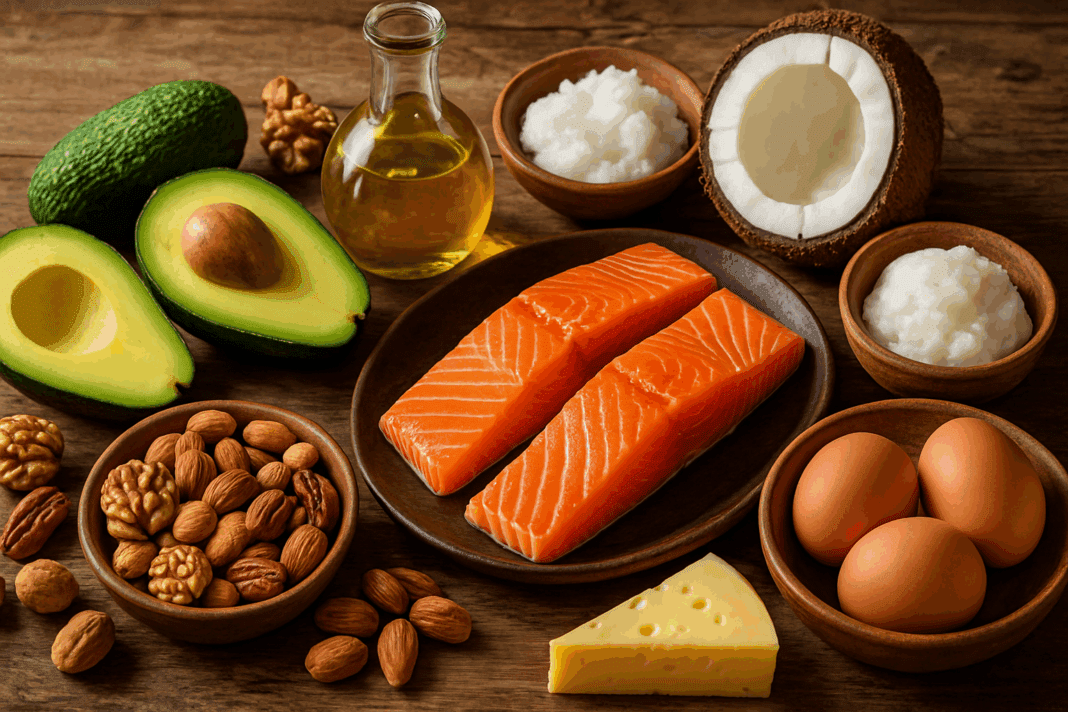Understanding the Role of Healthy Fats in the Ketogenic Diet
The ketogenic diet has risen from a niche lifestyle into a medically recognized nutritional strategy, used not only for weight management but for improving metabolic, neurological, and cardiovascular health. At the core of this high-fat, low-carbohydrate approach lies a metabolic shift known as ketosis, where the body relies on fat instead of glucose as its primary energy source. To achieve and sustain this state, a diet rich in the best fats for keto is not just ideal—it is essential.
However, not all fats support health equally. Knowing how to distinguish between beneficial and harmful fats allows individuals to make informed decisions that improve their results and support long-term wellness. Healthy fats for the keto diet do more than provide energy; they support cellular function, reduce inflammation, and help regulate hormones and appetite. The key is understanding which fats enhance health and which may undermine the benefits of ketogenic eating.
You may also like: Is the Keto Diet Safe or Dangerous? What Experts Say About the Risks, Benefits, and Basics of the Ketogenic Diet
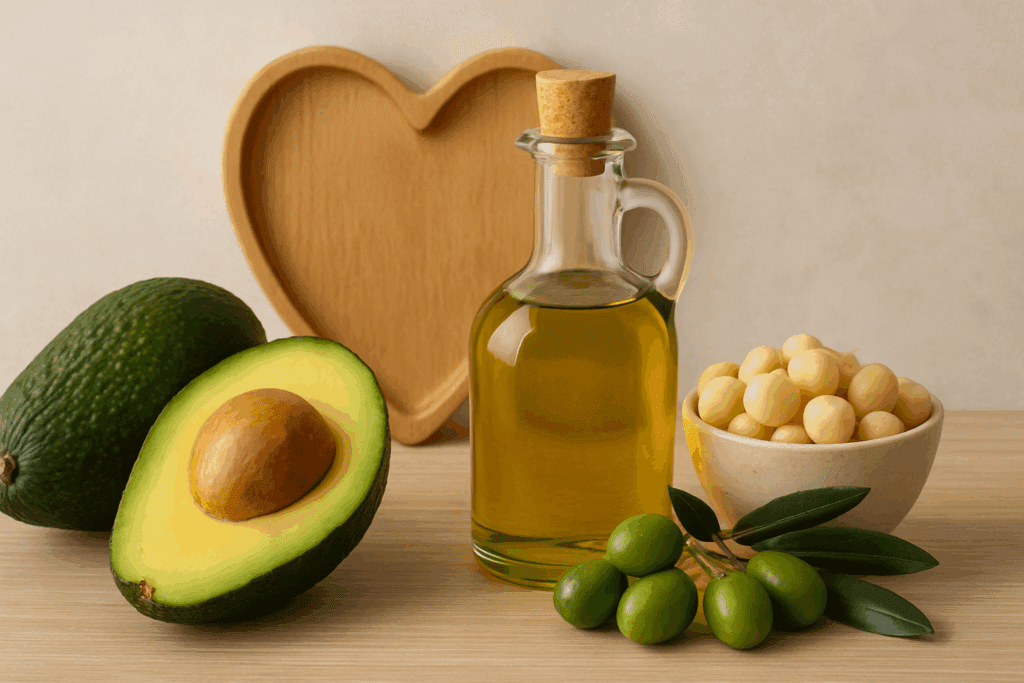
Monounsaturated Fats: A Foundation for Cardiovascular Health on Keto
Among the most recommended sources of ketogenic healthy fats are monounsaturated fats, which are found in abundance in avocados, olives, macadamia nuts, and extra virgin olive oil. These fats are known to improve cardiovascular outcomes by reducing LDL (bad) cholesterol, raising HDL (good) cholesterol, and lowering blood pressure. Nutritionists and cardiologists often emphasize their importance for heart health and metabolic balance.
In a ketogenic context, monounsaturated fats offer a reliable, nutrient-dense option that supports ketosis while minimizing health risks. These high fat foods for keto provide culinary flexibility as well, easily incorporated into dressings, sautés, and baked dishes. The creamy texture of avocados, for example, lends itself well to keto smoothies and dips, while olive oil enhances salads and roasted vegetables.
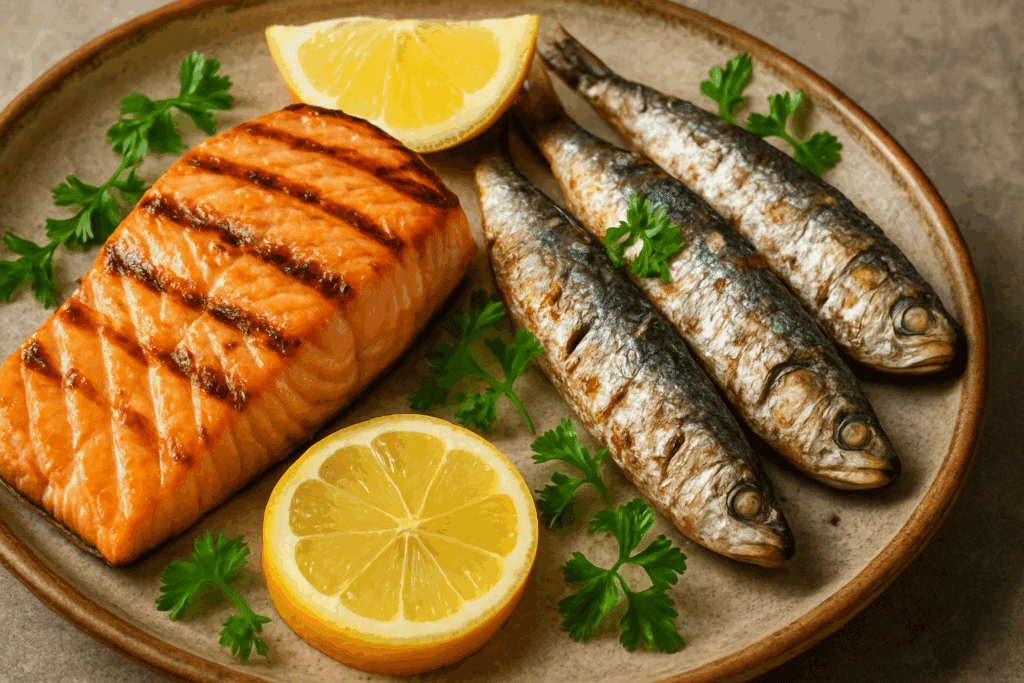
Omega-3 Fatty Acids: Essential Anti-Inflammatory Ketogenic Fats
Omega-3s represent another vital group of healthy fats for ketogenic diet plans. Primarily sourced from fatty fish like salmon, sardines, and mackerel, these polyunsaturated fats have been linked to numerous health benefits, including reduced inflammation, improved brain function, and lower risk of heart disease. Their role in balancing the omega-6 to omega-3 ratio is particularly important for keto dieters, whose intake of animal products may otherwise skew inflammatory.
These fats on keto are often supplemented through high-quality fish oils or algae-derived omega-3 capsules. The neuroprotective effects of omega-3s make them especially valuable for individuals using keto therapeutically for conditions like epilepsy or neurodegenerative disorders. Including omega-3s consistently ensures the diet supports not just weight loss, but systemic health.
Saturated Fats in Perspective: The Case for Whole Food Sources
Saturated fats often provoke controversy, yet when sourced from nutrient-rich foods such as grass-fed butter, pasture-raised meats, and coconut oil, they can be both safe and beneficial. These fats play structural roles in cell membranes and support hormone production. Within the framework of a ketogenic lifestyle, they serve as a dense and stable energy source.
Emerging research suggests that saturated fat intake, when consumed as part of a diet rich in whole foods and low in sugar and processed carbohydrates, may not increase cardiovascular risk for healthy individuals. Nevertheless, balance remains crucial. These high fat food for keto diet plans should be complemented with unsaturated fats to provide a diverse lipid profile and minimize inflammatory responses.
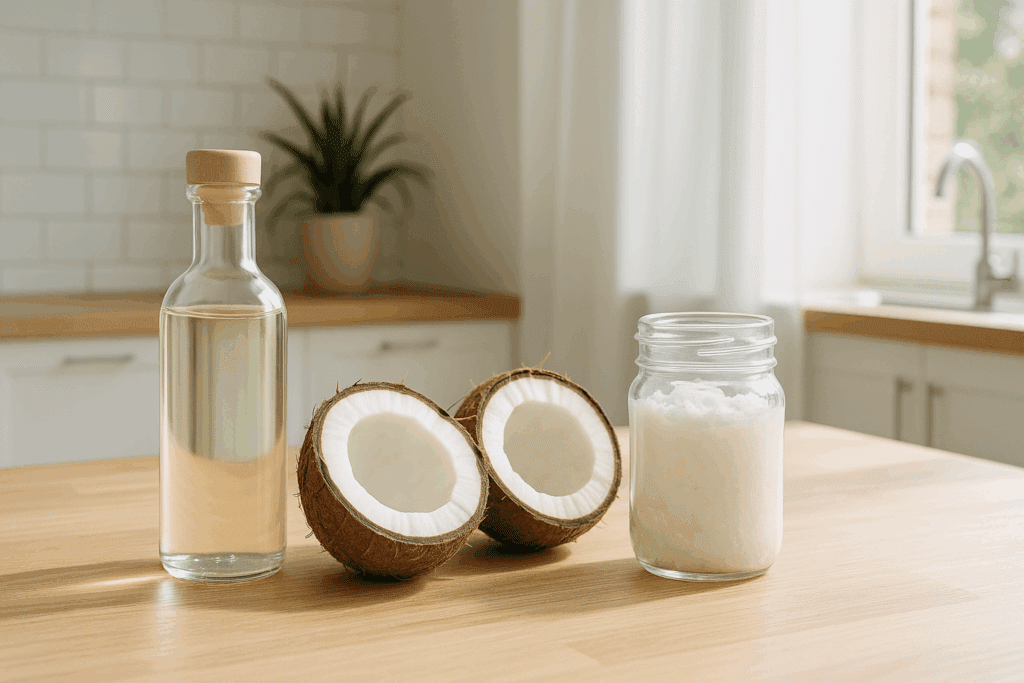
The Unique Power of MCT Oil and Coconut Oil
Medium-chain triglycerides (MCTs), found in coconut oil and available as concentrated supplements, are metabolized differently from long-chain fats. They are absorbed rapidly and transported directly to the liver, where they are swiftly converted into ketones. This makes them an ideal energy source and one of the best fats for keto when aiming to boost ketone production quickly.
MCT oil can be used in coffee, smoothies, or dressings and is often a favorite among those looking for enhanced mental clarity and sustained energy without a glycemic impact. While MCTs are not necessary for ketosis, they can serve as a valuable tool in achieving deeper states of fat adaptation and cognitive performance on the ketogenic diet.
Nuts and Seeds: Portable Sources of Ketogenic Healthy Fats
Nuts and seeds provide a wealth of ketogenic healthy fats along with fiber, plant-based protein, and essential nutrients. Almonds, walnuts, flaxseeds, chia seeds, and pumpkin seeds offer a spectrum of monounsaturated and polyunsaturated fats, including alpha-linolenic acid (a plant-based omega-3).
These foods are ideal for snacking, topping salads, or baking into low-carb treats. However, portion control is key. Although they are high fat foods for keto, they are also calorie-dense and easy to overconsume. Choosing raw or dry-roasted options without added oils or sugar helps preserve their nutritional integrity while supporting ketosis and weight control.
Eggs: Nutrient-Dense, Versatile, and Keto-Friendly
Eggs remain one of the most accessible and nutritionally complete high fat food for keto diet plans. Containing both fat and high-quality protein, eggs are rich in vitamins such as B12, choline, and fat-soluble nutrients like vitamin D and A. The yolk, in particular, houses the majority of the ketogenic fats and should not be discarded.
Long vilified due to cholesterol concerns, eggs have been rehabilitated by recent studies showing no significant link between moderate egg consumption and cardiovascular disease. Their versatility—from boiled and scrambled to baked and poached—makes them an indispensable part of any ketogenic kitchen.
Full-Fat Dairy: Creamy Sources of Healthy Fats for Ketogenic Diets
When well-tolerated, full-fat dairy products such as heavy cream, Greek yogurt, and hard cheeses contribute meaningfully to a high fat keto diet. These foods are rich in conjugated linoleic acid (CLA), a type of fat with possible anti-cancer and fat-burning properties, as well as calcium and probiotics.
However, not all dairy is created equal. It is essential to choose organic, grass-fed products without added sugars or emulsifiers. While dairy can enhance the enjoyment and satisfaction of meals, it should be consumed in moderation and tailored to individual digestive health and dietary needs.
Animal Fats: Traditional Fats Making a Nutritional Comeback
Rendered animal fats like tallow, duck fat, and lard were once dietary staples and are now enjoying a resurgence in popularity among ketogenic and ancestral eaters. These fats are highly stable at high cooking temperatures, making them ideal for saut\u00e9ing, roasting, and frying without producing harmful oxidation products.
When sourced from pasture-raised animals, these fats on keto offer a cleaner profile with fewer inflammatory compounds and higher concentrations of fat-soluble vitamins. As part of a diversified fat strategy, they can contribute to satiety and add rich, savory depth to meals.
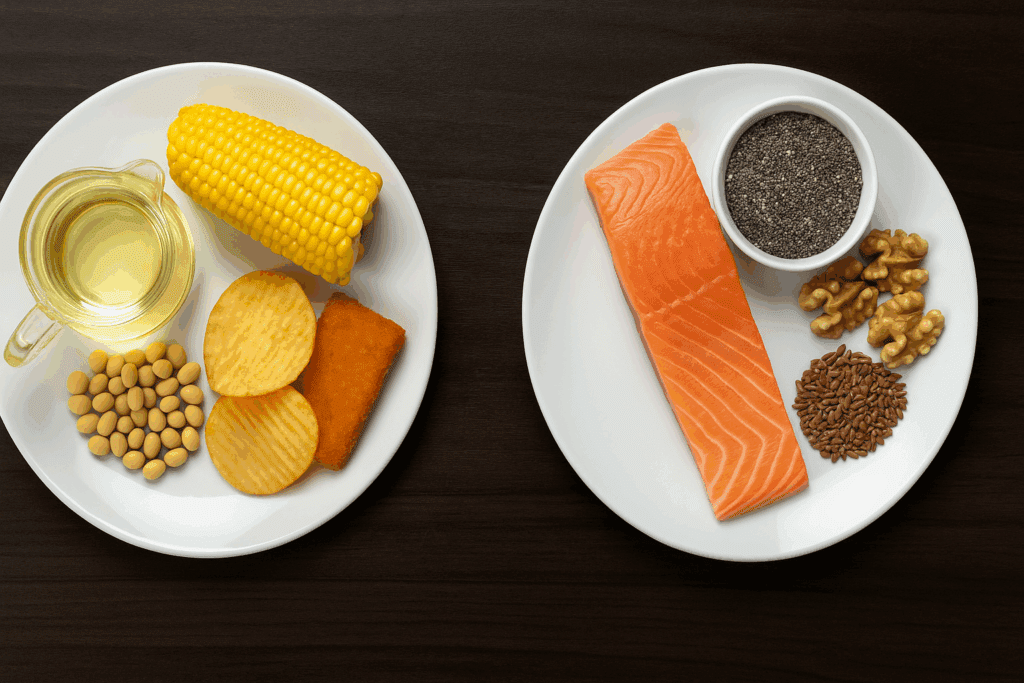
Managing the Omega Fatty Acid Ratio for Long-Term Success
Balancing omega-6 and omega-3 intake is essential for reducing inflammation and supporting optimal metabolic function. Many individuals inadvertently consume too many omega-6s due to the widespread use of seed oils such as soybean, corn, and sunflower oils in processed foods.
To correct this imbalance, the ketogenic diet should prioritize omega-3-rich fats while minimizing industrial seed oils. This recalibration of the fatty acid ratio enhances insulin sensitivity, brain function, and cardiovascular resilience—important goals for anyone pursuing a healthy fats for keto diet.
Avoiding Trans Fats and Inflammatory Oils on Keto
Trans fats, found in margarine, shortening, and many packaged foods, are universally recognized as harmful. They increase the risk of heart disease, inflammation, and insulin resistance. Even on a keto diet, it is possible to encounter trans fats hidden in processed foods marketed as low-carb or keto-friendly.
Being vigilant about ingredient labels and avoiding hydrogenated oils is crucial for maintaining the integrity of a ketogenic eating pattern. Experts agree that trans fats undermine the health-promoting aspects of ketogenic healthy fats and should be eliminated entirely from any diet.
The Importance of Fat Quantity and Individual Needs
While fat quality is paramount, fat quantity also plays a key role in achieving ketogenic goals. Consuming excessive fat, even from healthy sources, can lead to a calorie surplus that impedes weight loss or metabolic improvement. Personalized guidance and intuitive eating cues can help tailor intake to suit energy needs and performance goals.
For those using keto for therapeutic purposes, such as seizure management or neurological support, fat ratios may need to be more tightly controlled. Working with a dietitian or medical professional ensures that ketogenic fats are consumed in the right amounts and context for individual health outcomes.
Strategic Diversity and Culinary Application of Ketogenic Fats
Variety in fat sources adds not only to the flavor profile of meals but also to nutritional completeness. Rotating among animal-based and plant-based fats provides exposure to a wider range of vitamins, antioxidants, and bioactive compounds. This variety supports hormonal health, gut function, and long-term adherence.
Understanding how to cook with different fats also enhances both safety and enjoyment. Using stable fats like ghee for frying, and reserving delicate oils like flaxseed or walnut oil for cold dishes, preserves their nutritional value. Developing this culinary intelligence elevates the ketogenic diet from restrictive to gourmet.
How to Identify the Best Fats for Keto in a Processed Food World
Marketing tactics often exploit the popularity of keto by labeling products as “keto-friendly” regardless of fat quality. Reading beyond the label to examine ingredients and sourcing practices is essential. Healthy fats for keto are those found in whole foods and minimally processed sources, not in artificially engineered snacks or convenience meals.
Building nutritional literacy allows keto followers to navigate the food landscape with confidence, ensuring that their choices align with their goals. This discernment protects against the health risks of consuming unhealthy fats disguised as ketogenic.
Frequently Asked Questions: Choosing Healthy Fats for the Keto Diet
1. Can healthy fats for keto impact hormonal balance in women differently than in men?
Yes, healthy fats for keto can influence hormone regulation differently in women due to variations in reproductive hormone activity and metabolic demands. Estrogen, for example, is synthesized from cholesterol, making dietary fat crucial for hormonal stability, especially in premenopausal and perimenopausal women. Women may respond more positively to ketogenic healthy fats like monounsaturated fats and omega-3s, which support endocrine balance and reduce PMS or menopausal symptoms. Unlike men, who may experience more direct metabolic benefits, women often need to fine-tune fat intake to align with hormonal fluctuations throughout their cycle. Including the best fats for keto, particularly those with anti-inflammatory properties, can support thyroid function, fertility, and emotional resilience.
2. What are some overlooked high fat foods for keto that offer unique health benefits?
Many people focus on common options like avocado and olive oil, but there are lesser-known high fat foods for keto that offer exceptional health benefits. For instance, duck fat is rich in monounsaturated fats and has a high smoke point, making it ideal for cooking. Cod liver oil is another underrated ketogenic fat that provides both omega-3 fatty acids and vitamin D, essential for bone health and immunity. Hemp seeds deliver a balanced omega-6 to omega-3 ratio, making them a smart plant-based addition to a healthy fats for keto diet. Incorporating a range of these options helps diversify nutrient intake while maintaining ketosis.
3. How do ketogenic fats affect mental clarity and cognitive performance?
Ketogenic fats, especially MCT oil and omega-3-rich fish, play a vital role in enhancing brain function by supporting the production of ketones, which are a clean-burning fuel for the brain. Unlike glucose, ketones reduce oxidative stress and provide a more stable energy source, leading to improved focus and memory. Healthy fats for ketogenic diet plans that prioritize brain health often include phospholipids from eggs and DHA from fatty fish. These fats contribute to the structure of neuronal membranes and neurotransmitter function. Over time, consistent intake of ketogenic healthy fats has been linked to better mental endurance, emotional stability, and reduced risk of cognitive decline.
4. What role do healthy fats for keto diet plans play in immune system function?
Fats on keto don’t just provide energy—they are integral to the body’s immune response. Many high fat foods for keto, such as pasture-raised eggs and grass-fed dairy, contain fat-soluble vitamins like A, D, and E that directly support immune cell function. Omega-3 fatty acids, classified as ketogenic fats, help regulate inflammation and enhance the activity of white blood cells. Monounsaturated fats further support gut integrity, which plays a crucial role in immunity. A well-structured healthy fats for keto diet contributes to both innate and adaptive immunity, reducing vulnerability to infections and chronic disease.
5. Can a diet rich in ketogenic healthy fats support exercise recovery and muscle repair?
Yes, a targeted approach using ketogenic healthy fats can assist in post-workout recovery, especially for individuals following low-carb or endurance-focused training. Fats on keto, such as MCT oil and fatty fish, supply anti-inflammatory compounds that help reduce muscle soreness. Additionally, healthy fats for keto diet regimens contribute to mitochondrial repair, energy replenishment, and joint lubrication. Athletes may find that including the best fats for keto helps reduce oxidative stress and supports tissue regeneration. When paired with adequate protein, ketogenic fats provide a powerful recovery protocol for both recreational and elite fitness enthusiasts.
6. Are there any emerging trends in using healthy fats for ketogenic diet therapies beyond weight loss?
Absolutely. While initially popularized for weight loss, ketogenic healthy fats are now being studied for applications in mental health, cancer support, and neurodegenerative disease management. Researchers are exploring how high fat food for keto diet approaches can reduce seizure activity in epilepsy, modulate mood disorders, and limit tumor growth through metabolic regulation. Emerging therapeutic trends also include ketogenic protocols for managing insulin resistance and PCOS. As these fields evolve, healthy fats for keto continue to gain respect as tools for targeted healing and prevention, not just dietary macros.
7. How can one maintain the quality of fats on keto during cooking?
Preserving the quality of fats on keto depends heavily on cooking techniques and temperature control. Some healthy fats for keto diet plans, like extra virgin olive oil and flaxseed oil, are sensitive to heat and should be reserved for cold dishes or low-heat applications. In contrast, ghee, avocado oil, and beef tallow are more stable and suitable for high-heat cooking. Storing oils in dark glass containers away from heat and light also helps prevent oxidation. Maintaining fat quality ensures that ketogenic fats remain beneficial and don’t become inflammatory due to degradation.
8. What are some practical ways to include more ketogenic healthy fats in a busy lifestyle?
Incorporating ketogenic healthy fats doesn’t have to be time-consuming. Simple strategies include adding MCT oil to morning coffee, snacking on olives or macadamia nuts, and cooking meals in grass-fed butter or coconut oil. Pre-made fat bombs using ingredients like nut butters and cocoa butter are convenient options for those on the go. Smoothies with avocado or full-fat yogurt provide a creamy, nutrient-dense way to include healthy fats for ketogenic diet plans. Planning ahead by keeping these ingredients readily available can make sticking to a high fat food for keto diet easier and more sustainable.
9. Are all high fat foods for keto equally beneficial for heart health?
No, not all high fat foods for keto offer the same cardiovascular benefits. While monounsaturated and omega-3 fats support heart health by lowering inflammation and improving lipid profiles, some saturated fats may raise LDL cholesterol depending on the individual. It’s important to focus on balance and diversity, favoring healthy fats for keto diet routines that include nuts, seeds, olive oil, and fatty fish. Avoiding processed trans fats and focusing on whole-food ketogenic fats enhances heart health outcomes. Monitoring biomarkers with a healthcare provider ensures that fat intake aligns with personal risk factors.
10. How can someone new to keto distinguish between marketing claims and genuinely healthy fats for keto?
With the rise of keto-branded products, consumers must become savvy about food labels. Many packaged items claim to be keto-friendly while containing low-quality oils like soybean or palm kernel oil, which can disrupt the benefits of ketogenic healthy fats. Look for certifications such as “cold-pressed,” “organic,” or “pasture-raised” to ensure the source and processing of fats meet quality standards. Reading ingredient lists and understanding which high fat foods for keto offer real nutritional value versus empty calories is essential. Trustworthy ketogenic fats will always come from whole, minimally processed foods rather than synthetic or overly refined sources.

Choosing the Right Ketogenic Fats for Long-Term Wellness
The ketogenic diet offers a powerful framework for healing, energy, and transformation—but only when built on the foundation of high-quality nutrition. Selecting the best fats for keto means going beyond carb counting to consider how each fat source affects the body, the brain, and long-term wellness. From omega-3s that reduce inflammation to monounsaturated fats that support heart health and MCTs that fuel ketone production, ketogenic healthy fats are as diverse as they are essential.
When thoughtfully chosen, these high fat foods for keto do more than power a dietary trend—they empower a healthier lifestyle. By applying nutritional expertise and practicing mindful eating, individuals can sustain ketosis, improve metabolic resilience, and enjoy the many benefits that this dietary approach offers. The key lies not in simply eating more fat, but in selecting the right fat—fueling not just the body, but the future.
Further Reading:
What To Eat and Limit on the Keto Diet
Healthful fats for keto and how to use them
14 Healthy Fats for the Keto Diet (Plus Some to Limit)


